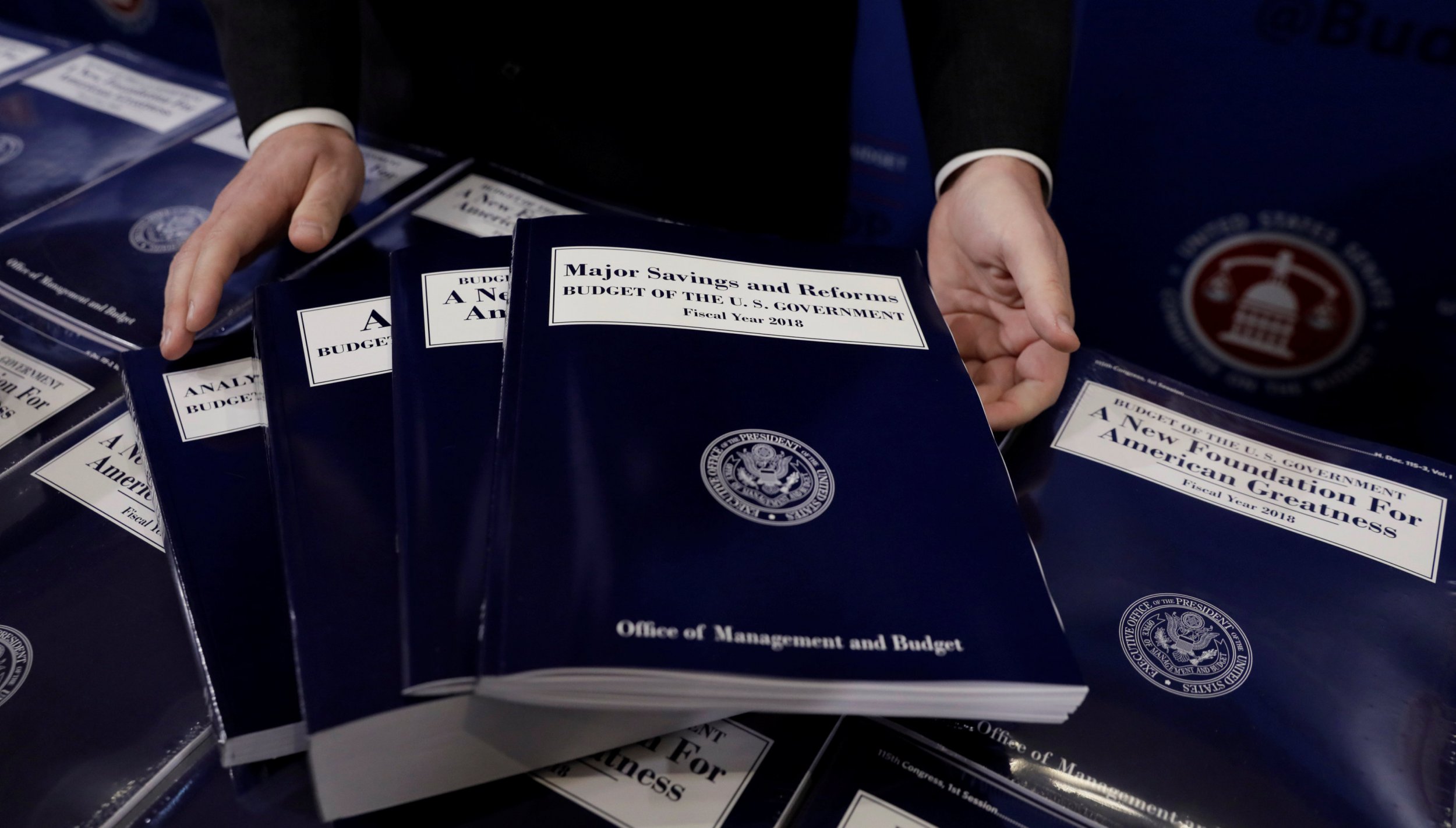
The White House on Tuesday will ask Republicans who control the U.S. Congress—and federal purse strings—to slash spending on healthcare and food assistance programs for the poor as they push ahead on plans to cut taxes and trim the deficit.
President Donald Trump is set to submit a raft of politically sensitive cuts in his first full budget, for the fiscal year that starts in October, a proposal that some analysts expect will be put aside by lawmakers as they craft their own budget and spending plans.
Trump, who is traveling overseas and will miss the unveiling of his plan, wants lawmakers to cut $3.6 trillion in government spending over 10 years, balancing the budget by the end of the decade, according to a preview given to reporters on Monday.
More than $800 billion would be cut from the Medicaid healthcare program for the poor and more than $192 billion from food stamps.
Republicans are under pressure to deliver on promised tax cuts, the cornerstone of the Trump administration's pro-business economic agenda, which would cut the business tax rate to 15 percent from 35 percent, and reduce the number of personal tax brackets to three from seven. But their policy agenda has stalled as the White House grapples with the political fallout from Trump's firing of former FBI Director James Comey.
Comey had been leading a probe of alleged Russian meddling in the 2016 U.S. election.
Trump's biggest savings would come from cuts to the Medicaid program made as part of a Republican healthcare bill passed by the House of Representatives.
Trump upheld his promise—for the most part—that his budget would not cut Medicare and Social Security, two social insurance programs that deficit hawks have long targeted for reforms.
Those so-called entitlement programs may not come out of Capitol Hill unscathed, however. House of Representatives Majority Leader Kevin McCarthy, a fellow Republican, said lawmakers would have to reform both programs to save them.
"We have to look at the entitlements if we believe that we want them to be there for future generations," he told CNBC.
The healthcare bill passed by the House aims to gut the Obama administration's signature 2010 Affordable Care Act, known as Obamacare, that expanded insurance coverage and the government-run Medicaid program for the poor. But it faces an uncertain future in the Senate, which is writing its own law.
The White House proposed changes that would require more childless people receiving help from the Supplemental Nutrition Assistance Program, better known as food stamps, to work.
STEEP CUTS
The plan would slash supports for farmers, impose user fees for meat inspection and sell off half the nation's emergency oil stockpile. Another politically fraught item is a proposal for cuts to the U.S. Postal Service, a goal that has long eluded lawmakers and administrations from both political parties.
The first look at the plan came in a "skinny budget" released in March—a document that received a tepid response from Congress.
Most departments would see steep cuts, particularly the State Department and the Environmental Protection Agency.
There is some new spending. The Pentagon would get a boost, and there would be a down payment to begin building a wall on the southern border with Mexico, which was a central promise of Trump's presidential campaign.
The budget includes $25 billion for a plan to give parents six weeks of paid leave after the birth or adoption of a child, and $200 billion to encourage state and local governments to boost spending on roads, bridges, airports and other infrastructure programs.
The plan drew immediate fire from lobby groups, including from the Committee for a Responsible Federal Budget, which said it relied on "rosy assumptions," gimmicks and unrealistic cuts.
"While we appreciate the administration's focus on reducing the debt, when using more realistic assumptions, the president's budget does not add up," Maya MacGuineas, the group's president, said in a statement.
Trump's plan relies on forecasts for economic growth of 3 percent a year by the end of his first term—well beyond Congressional Budget Office assumptions of 1.9 percent growth.
"That assumes a pessimism about America, about the economy, about its people, about its culture, that we're simply refusing to accept," White House budget director Mick Mulvaney said of the CBO assumptions on Monday.
Uncommon Knowledge
Newsweek is committed to challenging conventional wisdom and finding connections in the search for common ground.
Newsweek is committed to challenging conventional wisdom and finding connections in the search for common ground.
About the writer
To read how Newsweek uses AI as a newsroom tool, Click here.








